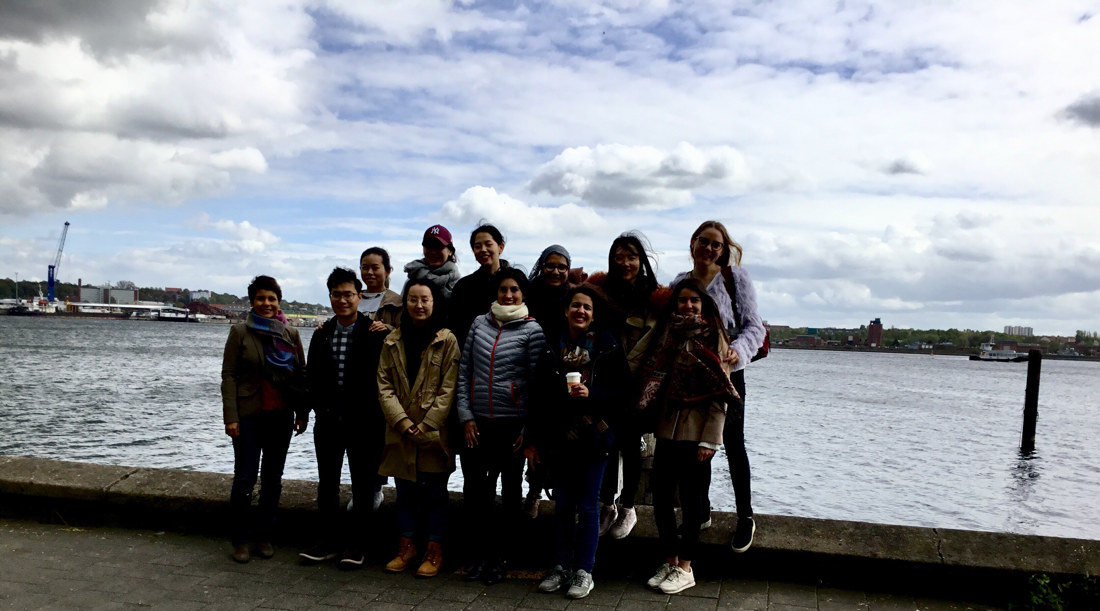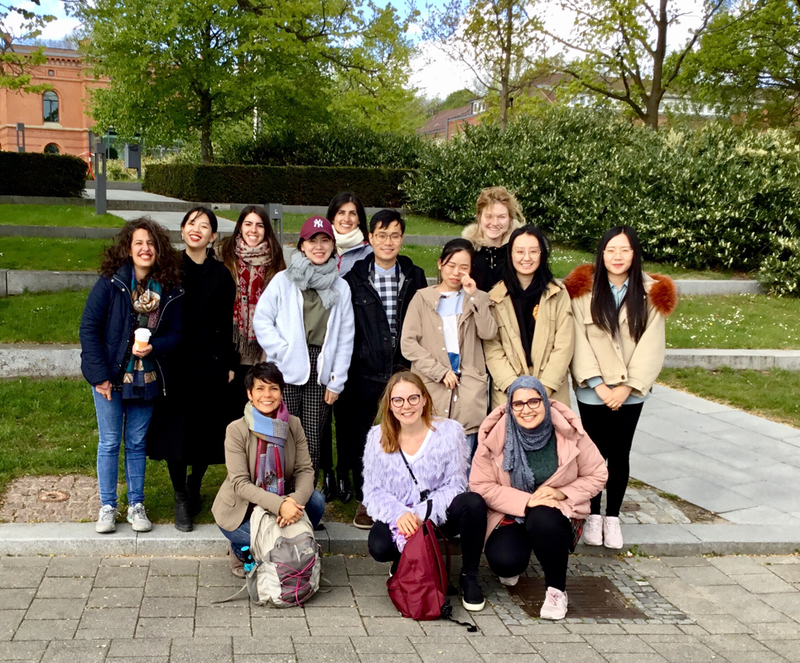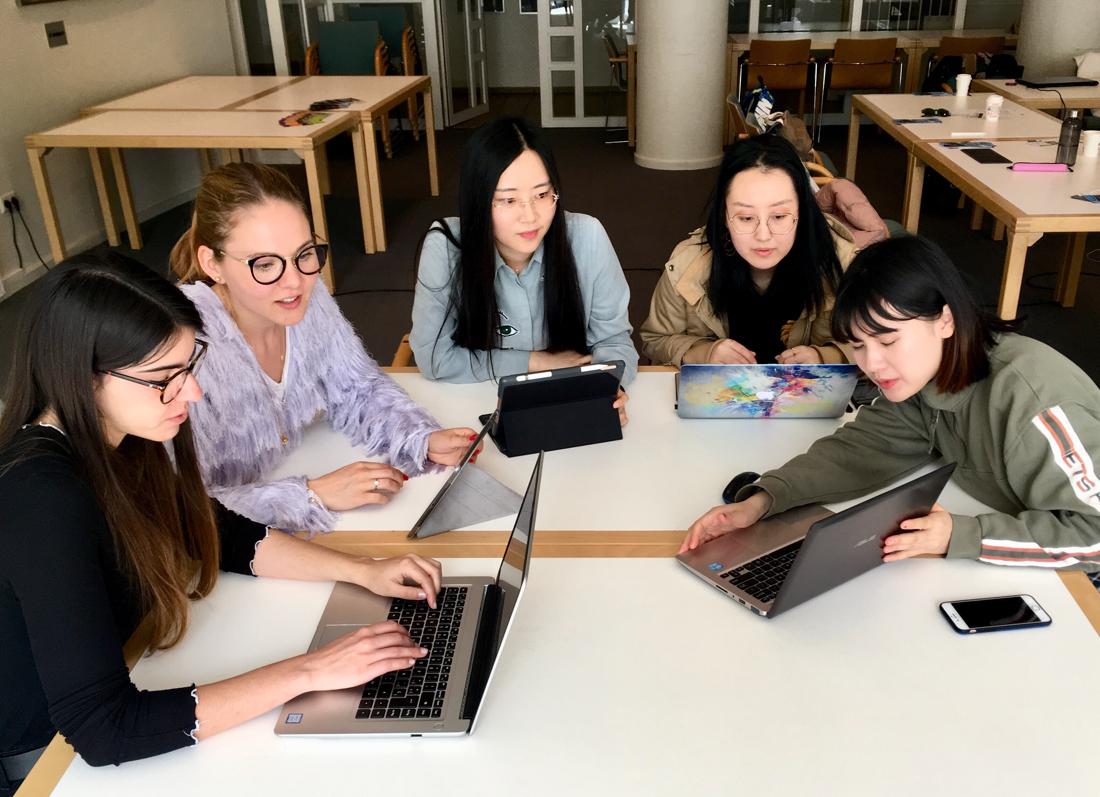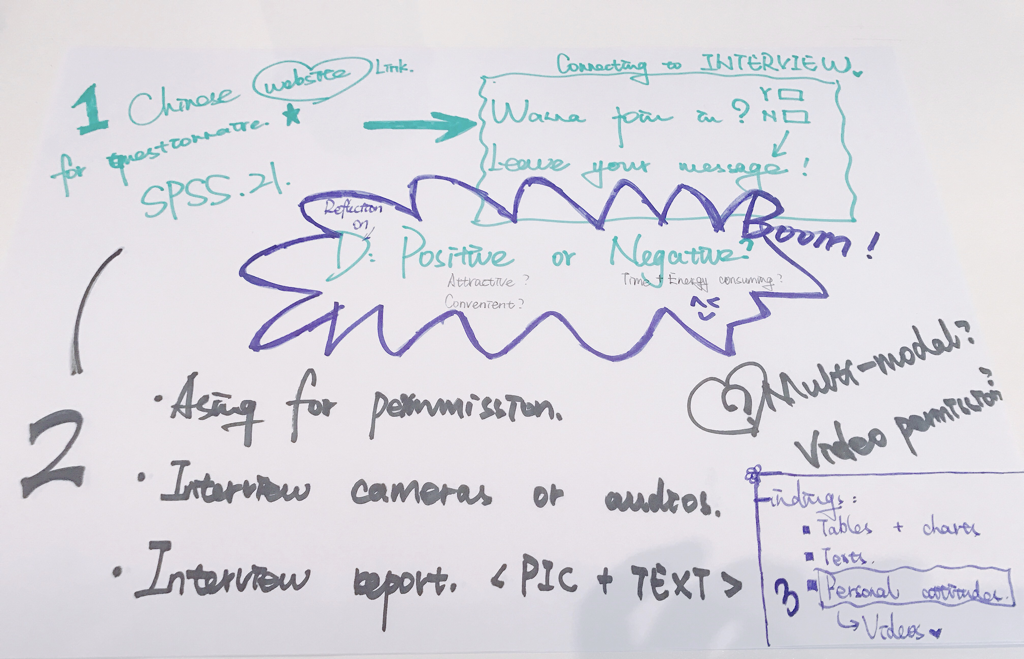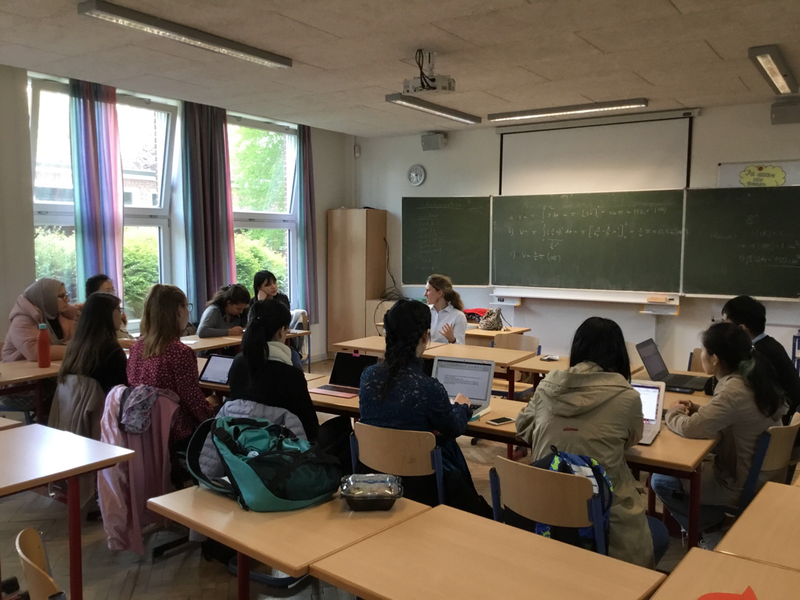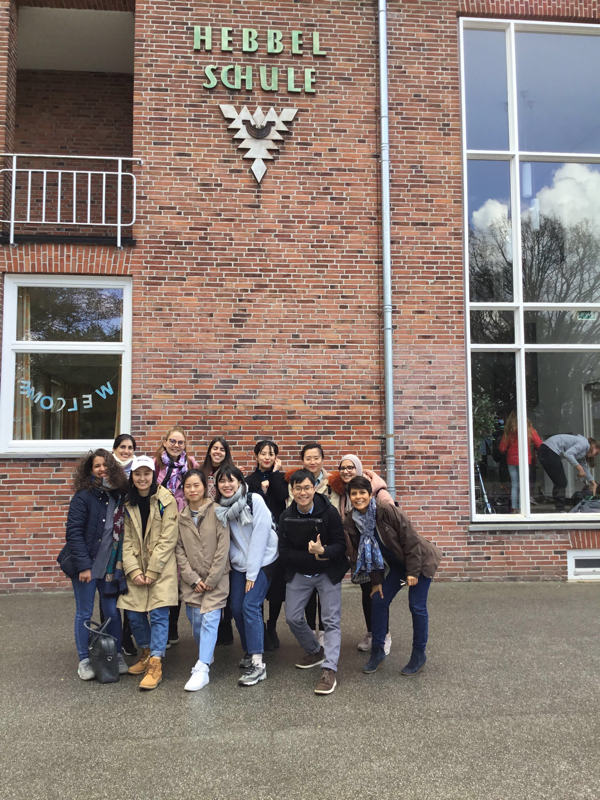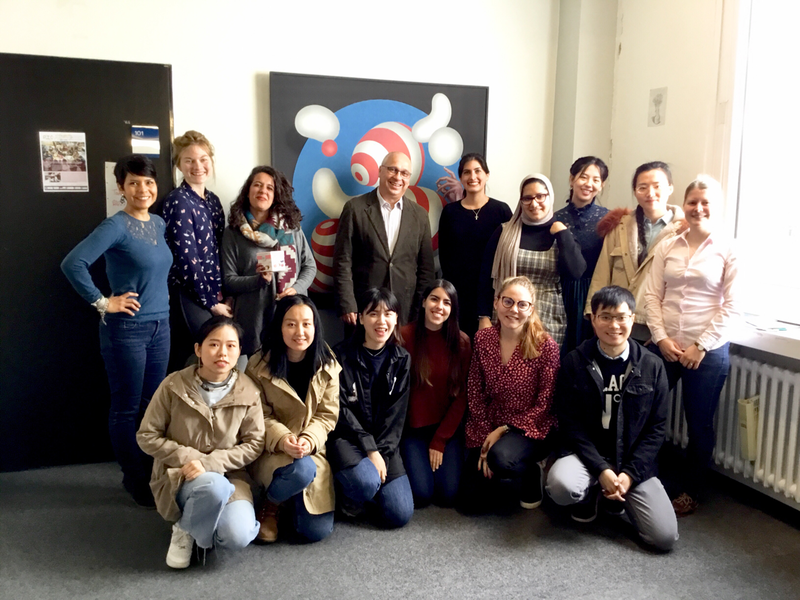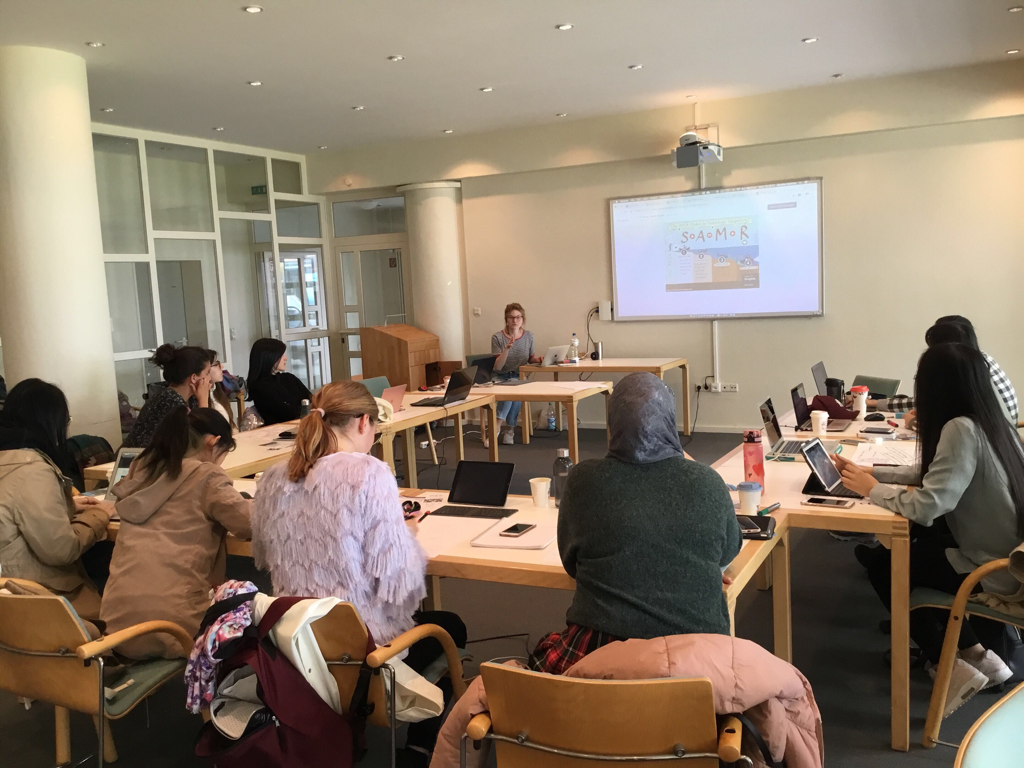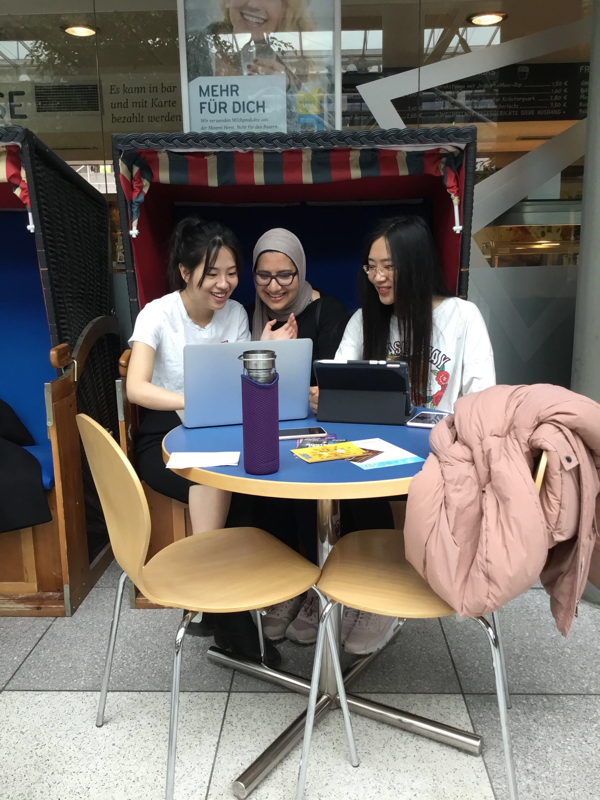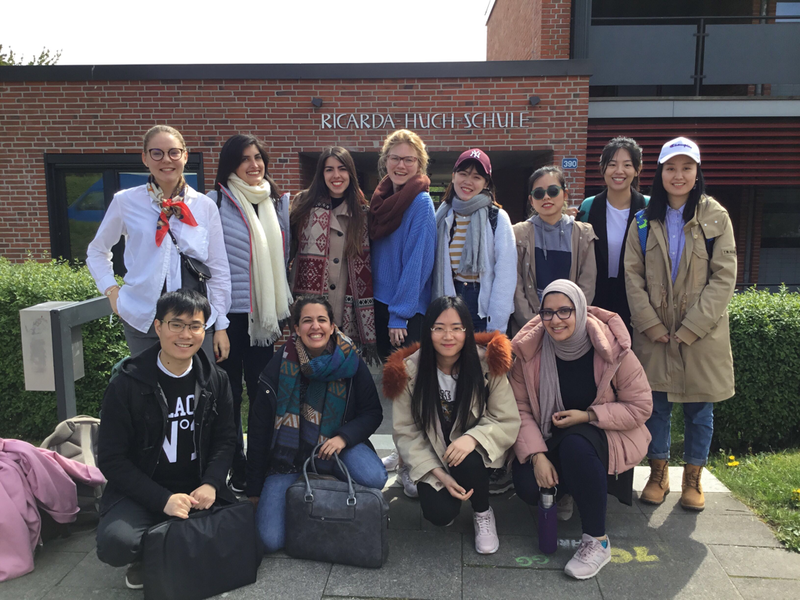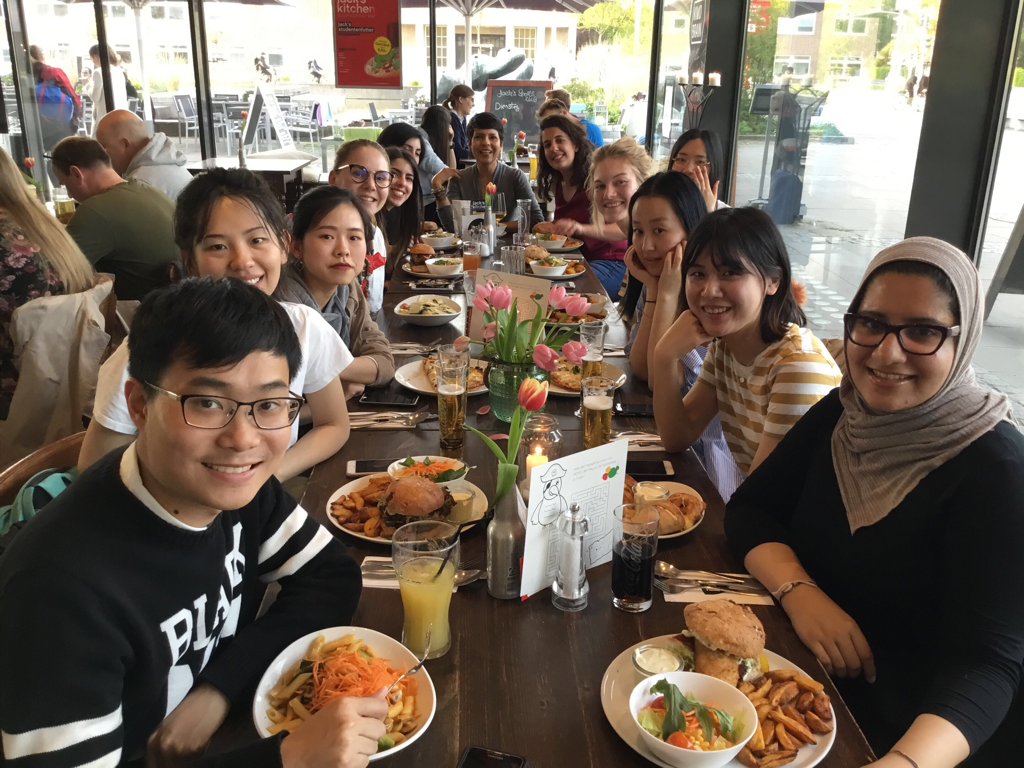|
Introduction of the author
Hi, everyone! I’m Jemma, a student majoring in Applied Linguistics and TESOL in Newcastle University. I’m always thinking about how to be a better teacher in my future career, and my studying experience in UK helps me realize how important technology influences teaching and learning such as the use of Blackboard and PPT in class. Meanwhile, reflective logs I’ve done for a module inspires me to think about reflecting on my learning process and possibly future teaching. So I’m really excited to participate in the PIC project and see how it works to integrate technology in language teaching! |
The first day in Kiel!
It’s so happy to meet everyone and work together! I believe we’ll have a good time here!
|
How can I connect my own work to any technology tools such as e-portfolio in this program?
—Reflection on Dissertation Since I don’t have much teaching experience, I feel that the best way to connect the e-portfolio with my own work is to reflect on my dissertation and post the ideas, research questions, data collection process, and my own reflections as well. Maybe it is more attractive to integrate multi-modal in presenting my dissertation to the public and get possible advices, and more convenient to follow rather than reading papers. And I can also reflect on my own attitudes, opinions or difficulties I face in my study, which might help myself record the research process and benefit the future study. But is there someone who’s gonna look at my e-portfolio? ... |
The second day!
|
|
First video we produced together!
It is so nice to try new things and cooperate with cohort members. And I’ve learned a lot from their creative and interesting ideas, thoughts, and even the video-editing techniques. As for the topic, even though I mentioned in the video that we may face many difficulties when applying selfproduced video in language teaching, I’m still positive towards its usefulness in my future teaching to reflect on many facets. Hopefully I can learn it better and practice more! |
Interviewing a teacher in a German school who joins in the eTwining program!
It is quite exciting to interview a German teacher in a school, and get to know how the eTwining project works in a specific way. What is more important, it makes me think about the possibility of the similar project that may apply in my future teaching context, a provincial capital city where I studied and worked before.
Based on what I know, one of the difficult thing to apply there is that teachers already have so much work to do. It seems not appealing for them to participate in the project given the situation that the current educational system in China is still directed by examination and thus it is normal to see silent language classes where learners have less chances to speak and cooperate but do lots of grammatical or test practices. Therefore, designing specific activities and tasks that are suitable for their students in this project may lay extra burden on them. Another obstacle is to convince school directors and parents to join in voluntarily due to the lack of visible and professional assessment, even though we all believe the project if truly beneficial to learners. But the question is: In what ways learners’ progress can be reflected clearly? To what extent it can be applied?
It is quite exciting to interview a German teacher in a school, and get to know how the eTwining project works in a specific way. What is more important, it makes me think about the possibility of the similar project that may apply in my future teaching context, a provincial capital city where I studied and worked before.
Based on what I know, one of the difficult thing to apply there is that teachers already have so much work to do. It seems not appealing for them to participate in the project given the situation that the current educational system in China is still directed by examination and thus it is normal to see silent language classes where learners have less chances to speak and cooperate but do lots of grammatical or test practices. Therefore, designing specific activities and tasks that are suitable for their students in this project may lay extra burden on them. Another obstacle is to convince school directors and parents to join in voluntarily due to the lack of visible and professional assessment, even though we all believe the project if truly beneficial to learners. But the question is: In what ways learners’ progress can be reflected clearly? To what extent it can be applied?
The third day!
|
It’s a good chance to get to know the German educational system and girls’ feedback after visiting a German school. Even though some of them didn’t understand Spanish and classroom language, they can still see how the teacher interacted with the students from her body language.
And the blackboard they used in German school may be impressed as well, cause in our public schools, it is still common to see the traditional blackboard that is stick to the wall and cannot be moved. But movable one is definitely more convenient! |
The fourth day!
Another first time to visit a Spanish class in a German school!
One of the impressive things I’ve noticed in the class was the attitudes of the students. They are quite different from my previous students. They were not nervous at all even they knew we were watching the class, and their response to the teacher’s questions were so positive, maybe because they were not afraid of making mistakes in the class. Maybe I can learn from them and encourage students to participate in the classroom activities without caring much about making errors.
One of the impressive things I’ve noticed in the class was the attitudes of the students. They are quite different from my previous students. They were not nervous at all even they knew we were watching the class, and their response to the teacher’s questions were so positive, maybe because they were not afraid of making mistakes in the class. Maybe I can learn from them and encourage students to participate in the classroom activities without caring much about making errors.
My favorite part: food!
PIC teacher development program~
Never ends learning ~
Never ends learning ~

